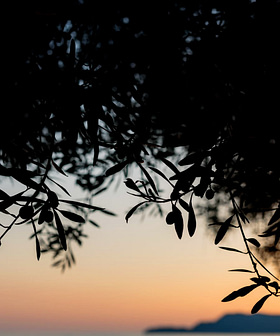A debate over olive oil testing renewed in Northern Cyprus after a random sampling by the de facto state’s Ministry of Agriculture and Natural Resources found that 19 of 66 bottles labeled as virgin or extra virgin olive oil were adulterated.
The testing was conducted in January, with bottles selected from five of the state’s six districts. The results of the analysis were published late last month.
“It’s evident that regular analyses of olive oil are not being conducted,” Fide Kürşat, a deputy of the Republican Turkish Party, told local broadcaster Kıbrıs Postası TV. “Those who make unfair profits by selling fake olive oil and those who play with public health should be exposed.”
The Ministry of Agriculture said it had identified seven companies responsible for 18 of the samples and is taking legal action against five companies. The producers of one sample could not be identified.
See Also:The Olive Farm that Breathed New Life into Cyprus’s No Man’s LandThe Turkish Cypriot Chamber of Industry has responded to the report by calling on the government to fund new laboratories and expand testing. Currently, producers and officials in Northern Cyprus send samples to Turkey for testing.
According to the European Commission, which views Cyprus as a single country though does not extend the usual rights of European Union members to Northern Cypriots, the island was anticipated to produce 6,000 tons of olive oil in the 2023/24 crop year, the island’s highest yield since 2017/18.
Northern Cyprus
Northern Cyprus, also known as the Turkish Republic of Northern Cyprus, is a self-declared state occupying the northeastern part of the Mediterranean island of Cyprus. It is recognized only by Turkey, while the United Nations and 192 of its member countries consider the whole island a single country. The division stems from conflicts between Greek and Turkish Cypriots in the 1960s and 1970s. Despite international calls for reunification, the island remains politically divided.
Celal Arap, a producer with about 1,000 trees in Northern Cyprus, indicated that government policies create conditions for fraud in the state. He told local newspaper Kibris that the 2010 import ban on olive oil meant local production occasionally does not cover demand.
Instead, producers import olives as a workaround, which they mill into olive oil. “Over time, with the change in the demographic structure and, of course, the taste in the country, there has been a serious demand for olives from abroad,” he said.
However, as olive prices rose in tandem with olive oil prices, producers have struggled to import enough olives to meet demand, creating fertile ground for unscrupulous actors in the sector.
“In the current situation, it is very risky for domestic producers to invest in olives,” Arap said. “The product was four times more expensive this year compared to last year.”
“This situation puts the producer in serious difficulty,” he added. “The producer can only buy a quarter of the product they bought last year with the money obtained from the olive oil sold last year. This is also a very serious problem.”
While the ministry did not speculate about the cause of the adulteration, high olive oil prices at origin have fueled fraud globally.
According to Europol, selling fake olive oil has become a “common practice.” The European-wide policing agency made the statement after seizing 260,000 liters of adulterated olive oil in Spain and Italy in December.
In the case of Northern Cyprus, regular inspections may be the best way to reduce counterfeits in the local market.
“Creating new laws is not sufficient; the necessary regulations must also be imposed urgently, and the lack of controls, which is one of the biggest problems in the country, must be eliminated,” Kürşat said.
Arap agreed: “Those who do these things must be held accountable,” he concluded.









